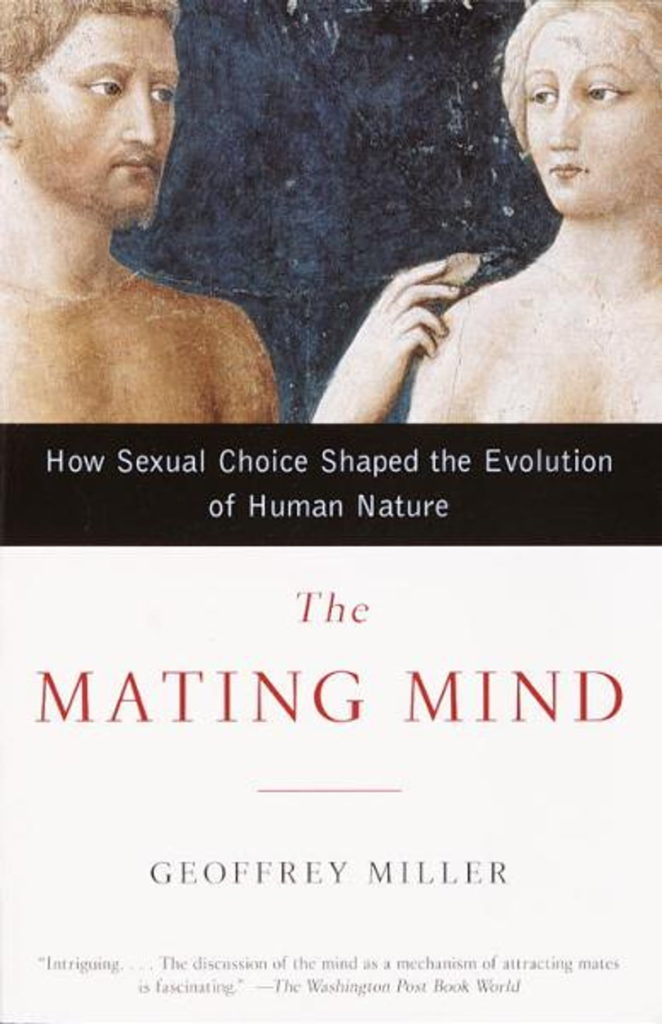Sustainability and mating
A friend told me he thought of me and my sustainability leadership work with concern while reading the book The Mating Mind.
He described it as describing the implications and effects of sexual selection in evolution. He started with the example of peacocks having elaborate tails. Sexual selection suggests that the tails that make them easy targets for predators indicate all its other genes are fit, so a potential mate attracted to big tails will more likely give birth to healthy children more likely to have more grandchildren. The upshot: animals evolve sexual attraction to some properties that seem maladaptive. There’s a lot more detail than I’ll go into here.
My friend told me one property of traits like peacock’s tails across the animal kingdom is that such traits waste energy. Most living things conserve energy so being able to waste it implies adaptive fitness like the peacock’s tail
In other words, sexual selection implies that wasting energy may be more attractive in all sexually reproducing species, including humans. He said the book suggests In humans, things like creating art or being clever can be attractive.

He said he thought of my work trying to help people and culture pollute less. If humans are sexually attracted to wasting energy, sustainability leaders and advocates may have to fight against an evolutionary pattern the precedes humanity. Fighting against nature seems hard (though not the end of the story).
Have humans evolved to find wasting energy attractive? Are we attracted to people who waste? Will wasting less and conserving make you less attractive?
These questions pose serious problems. I’ve never seen an unattractive woman getting out of a Ferrari. I don’t see women’s dating profiles suggesting they like to avoid flying or standing in front of a Prius. I see many touting how many countries they’ve flown to and how many more are on their bucket list. They’re making themselves more attractive by showing huge amounts of waste.
My experience
Longtime readers know I worked as a dating coach and developed good skills at attracting, meeting, and developing intimate relationships with women. My experience is consistent with the trend my friend implied.
In particular, when I flew around the world, bought fancy new clothes regularly, ate out all the time, and did all sorts of wasteful things I won’t do any more, I found attraction from women from sharing all these things. Stories about flying or showing off new clothes created attraction and led to intimate relationships. Women said “I love you” fairly often to me, often saying it first.
These days I pick up litter and volunteer to bring groceries to a community center, dragging a wagon full of food behind me. I might as well be invisible to women when I conserve energy. You can call our culture a patriarchy, but in dating and sexual selection, women are choosier (OkCupid research showed “women rate an incredible 80% of guys as worse-looking than medium. Very harsh.” among its users, then deleted its findings so I had to link to archive.org’s copy). They are not wasteful. I think most people would consider them pro-social, even noble, but as far as behavior is concerned they are far less attractive to women than wasteful things.
I don’t date men so I’m not comparing women with men since I have no information the other way.
What to do
Is the cause of polluting less lost? Will wasteful people mate more, or have our ancestors created a species that likes conspicuous consumption?
Not necessarily. Wasting time also shows up as being attractive. If so, a movement of people so dedicated to acting on sustainability that they spend a lot of time on it could become attractive again. More dedication could become more attractive. Status helps too.
The old joke comes to mind: For the lead singer in a band, what’s the worst part about breaking up with his girlfriend?
He has to find a new place to live.
In other words, there are many ways to be attractive that don’t require wasting energy.
Read my weekly newsletter

On initiative, leadership, the environment, and burpees
3 responses on “Sustainability and mating”